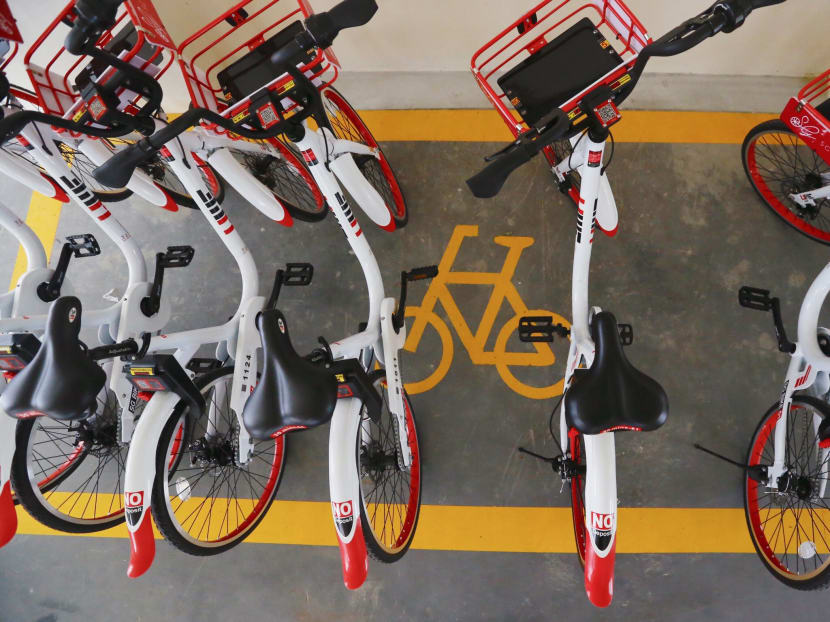Standardise penalty regime, geo-fencing technology for bike-sharing operators
Last month, the Land Transport Authority, National Parks Board and 16 town councils signed a Memorandum of Understanding with the five bicycle-sharing operators in Singapore, namely oBike, ofo, mobike, Gbikes and SG Bikes.

The letter writer welcomes the signing of the MoU between the authorities and bike-sharing operators, and proposes more improvements for the bike-sharing community,. Photo: Najeer Yusof
Last month, the Land Transport Authority, National Parks Board and 16 town councils signed a Memorandum of Understanding with the five bicycle-sharing operators in Singapore, namely oBike, ofo, mobike, Gbikes and SG Bikes.
It is a step in the right direction to encourage the responsible use of shared bicycles.
So, too, is the latest announcement that there will now be a channel for people to report shared bicycles that are abandoned or causing obstruction in their neighbourhood through the OneService mobile application by the Municipal Services Office.
However, more can still be done, and I suggest the following improvements.
First, the single platform for the public to report indiscriminate bike parking should also allow people to report faulty bikes, rather than having to open each operator’s app to make a report.
Second, there should be a single penalty regime for users who park indiscriminately rather than each operator implementing its own. Right now, ofo and oBike use a credit system, while SG Bike will charge users for as long as they do not return the bike to the designated docking station. I find SG Bike’s model more attractive.
The credit system is not as helpful, I find, in arresting the problem of indiscriminate parking. There is also a conflict with the business model: The operators’ earnings are affected because when users are penalised for bad behaviour, they end up moving to another operator. If there is a standardised penalty system, then this would not happen.
Right now, users have to pay a deposit (up to around $50) to every bike-sharing operator he or she uses. This means that if there are five operators, the user will have to pay five times the deposit because it depends on the locations where you may want to pick up a bike.
The authorities should collect the deposit just once and this will allow users to sign up with all the bike-sharing operators. The deposit collected can be used to buy public liability insurance in case the users get into an accident while using the shared bikes.
Third, to save on developing costs and resources, there should be a single platform for geo-fencing rather than each bike-sharing operator having to develop its own. SG Bike uses Geostation technology, while mobike’s fleet is GPS-enabled.
Standardising the geo-fencing technology will also complement the idea of having a centralised parking space for bike-sharing operators.
Using different technologies will mean that the designated parking spots will not be consistent. This contributes to the messiness in use of space.
Lastly, there should be age and height restrictions on who can use the shared bikes. Recently, I saw some young children less than 1m tall using the shared bikes and having problems handling them because their feet cannot touch the ground when they are seated.
Without these restrictions, the safety of the rider and other road users is compromised and accidents may happen. The authorities and bike-sharing operators should do something now before lives are lost or serious injuries happen.






